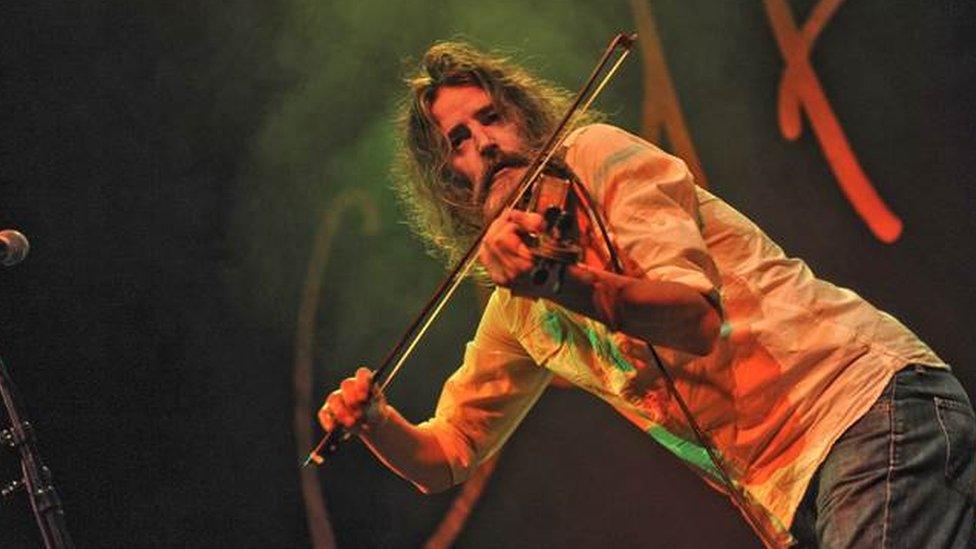Women on song for Celtic Connections
- Published
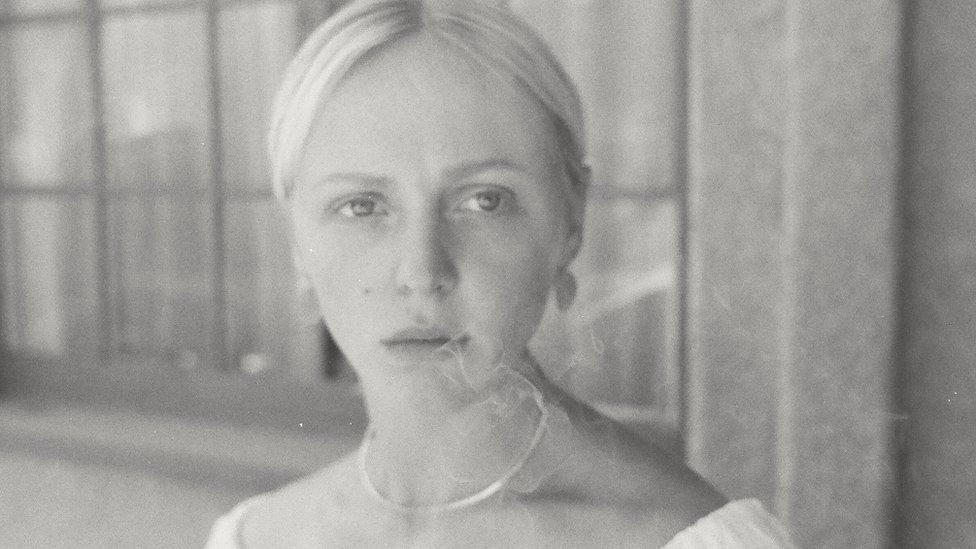
Laura Marling will perform the festival's opening night concert
More than 2,100 musicians from around the globe are to take part in the Celtic Connections festival in Glasgow.
About 300 events will be held across the city over the next 18 days.
The festival's artistic director Donald Shaw said he was deliberately highlighting the number of strong female artists in this year's line-up.
The 23rd annual Celtic Connections kicks off with 26-year-old singer-songwriter Laura Marling, accompanied by the BBC Scottish Symphony Orchestra.
Mr Shaw told BBC Scotland he had always been "fascinated" by the Brit award-winning songwriter.
"I think she is the closest we have to a modern-day Joni Mitchell," he says.
"Although she is perceived as being in the mainstream, I see her very much as being a folk star in terms of her song-writing style and much in keeping with what we do."
The opening night concert will feature Marling performing live with string arrangements from an orchestra for the first time.
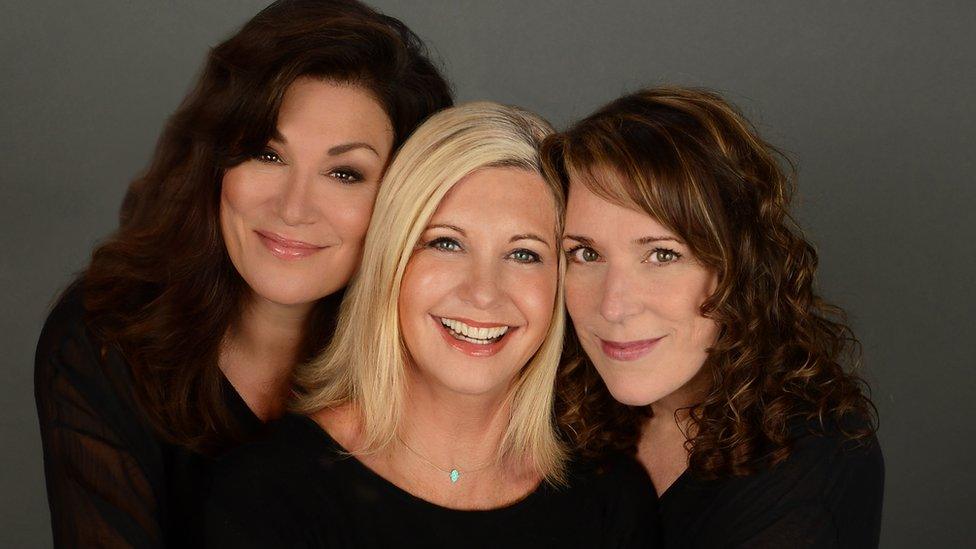
Olivia Newton John (centre) is one of the female artists performing at Celtic Connections
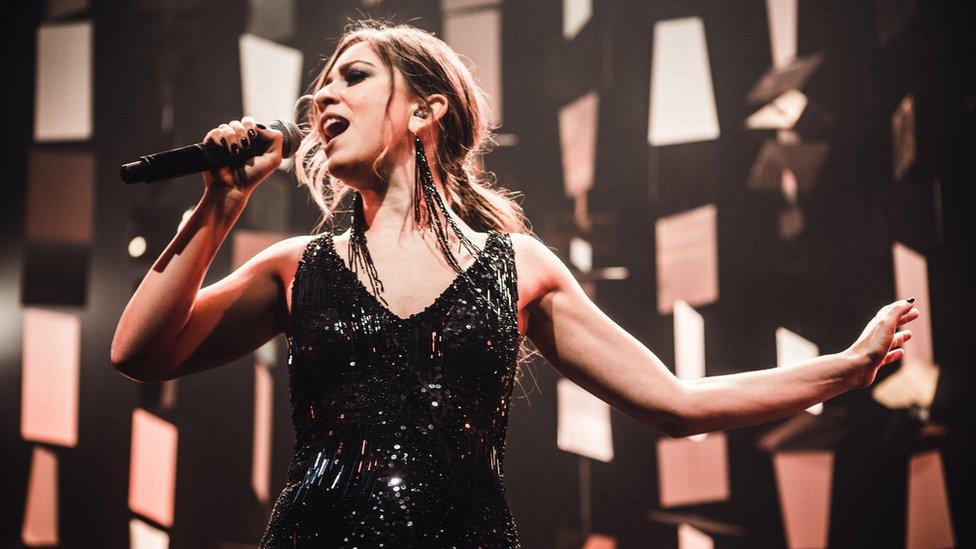
One of Brazil's finest performers, Roberta Sá, will perform at the festival
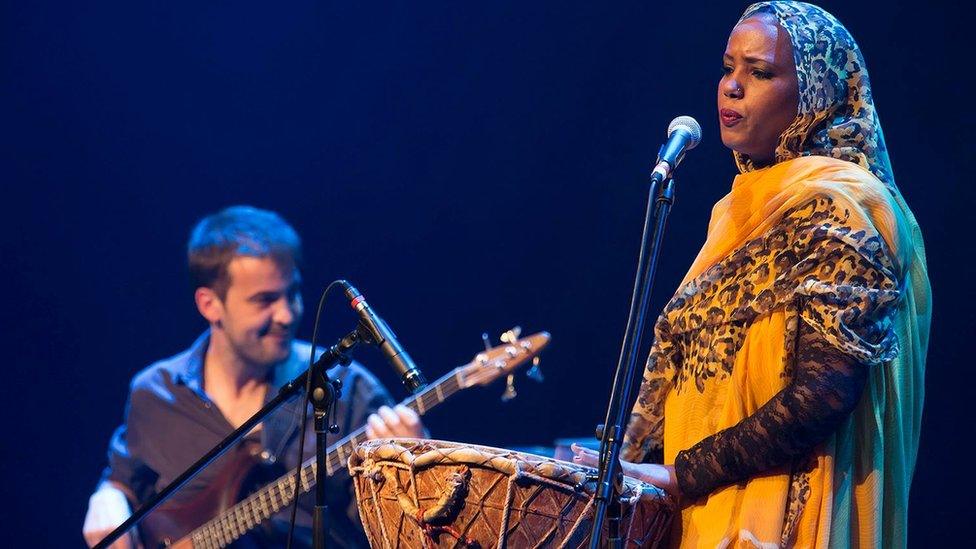
Aziza Brahim, from the Sahara, grew up in refugee camps in Algeria
It will also feature other female artists including Karine Polwart, Cara Dillon and Aziza Brahim, a singer from the Sahara who grew up in refugee camps in Algeria.
She was discovered there and has grown up to be one of the great world music artists.
Mr Shaw, who has been in charge of the festival for over a decade, said: "We have a lot of strong female artists and there is a bit of a theme of empowerment of women through music, particularly with some of the world music stars such as Aziza Brahim.
"The time seemed right to raise the role of women in music.
"There was a lot of negativity last year around some of the bigger festivals and the number of women they featured."

Baby Do Brasil is one of the Brazilian artists to appear at this year's festival

Scottish percussionist Evelyn Glennie is performing with Indian musician Trilok Gurtu

Anna Meredith won the Scottish album of the year award last year
Other female artists in the festival line-up include Olivia Newton John, Evelyn Glennie, and Martha Wainwright, along with reigning Scottish Album of the Year winner Anna Meredith.
Two of Brazil's finest female performers - Roberta Sá and Baby do Brasil - are to play together as part of the festival's special link with the South American country this year.
Mr Shaw said: "I have never programmed through gender in any way.
"I think the festival would be worse off if it did not have a strong female presence. Gender does have a different dimension in the way it produces music."
- Published19 January 2017
